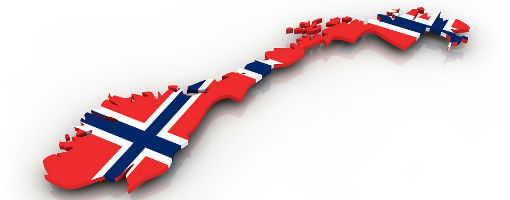The “resource-intensive” procurement process of the Swedish Fund Selection Authority (FTN) risks excluding smaller fund managers and could negatively impact Sweden’s capital market, AMF Fonder CEO, Katarina Romberg, has argued.
FTN, established in 2022, is responsible for selecting and procuring high-quality, sustainable, controllable, and cost-efficient funds for Sweden’s premium pension system. It replaced the former Premium Pension Fund Marketplace, which was criticised after rogue traders led to savers losing money — something the Swedish Pensions Agency (SPA) has worked to rectify.
In an interview for AP7’s podcast – Jubileumspodd – Romberg noted the advantages of such a “rigourous procurement” process but added that “it’s a lot of work to participate in the procurements”.
“The risk is that niche players will not be able to participate… It is an incredibly resource-intensive procurement procedure that limits the freedom of choice for savers in a way that may not be in the best interests of all individuals," she said.
In response, FTN defended this, highlighting that in its first five procurements, many local Nordic asset managers participated and were successful in competing with larger global organisations.
“However, it is true that competition is high, as many fund managers are interested and only funds of the highest quality and with low fees are granted fund agreements,” an FTN spokesperson told European Pensions.
The comments follow the reissuing of a tender by FTN and SPA for sustainability analysis systems in July. It was originally issued in March but was later cancelled because nine out of 10 submissions were rejected for not meeting the mandatory requirements, highlighting its strict criteria.
Romberg also raised concerns about the risks of awarding only large fund managers mandates – a possible consequence of this being a reduction in capital for Swedish companies.
She warned that this could not only limit fund choices for savers, but another “very unfortunate” outcome would be if it impacts the Swedish capital market.
For example, if a small-cap mandate is awarded to a larger asset manager over a smaller Swedish fund manager, like AMF Fonder, there’s a risk that more capital is allocated outside of Sweden. This could result in less funding being available for the Swedish capital market.
However, it was acknowledged in the podcast that the primary goal of FTN's procurements is not to satisfy the Swedish capital market, but to ensure that savers have good, high-quality funds to choose from.
She continued: “What I hope for the future is that we will continue to have a competitive range of funds. That is to say that the most attractive funds are really selected so that we can continue to deliver good pensions to savers. And also, as we talked about, it may not be the mission, but I hope that it will also be so that there is still capital available for the Swedish capital market through the system.”
In response, FTN stressed that it “does not move pension capital between markets or asset classes”.
Its spokesperson stated: “Capital invested in Swedish equities before a procurement remains in Swedish equities after the procurement. For example, actively managed Swedish small-cap funds are only replaced by other actively managed Swedish small-cap funds, and global index funds by other global index funds.”
More broadly, reiterating Romberg’s comments, the spokesperson highlighted that the purpose of FTN is to provide a higher and safer premium pension for Swedish pension savers, compared to the old system.
“However, this does not mean that we turn a blind eye to potential side effects of our work. On the contrary, we engage in dialogue with market participants to ensure that our actions both benefit pension savers and are sustainable in the long term,” they added.
On the issue of freedom of choice for savers to choose their funds in the Swedish premium pension system, the spokesperson referred to the Social Insurance Code, which sets out that the premium pension system must offer freedom of choice by allowing pension savers to influence the risk level and investment policy for the management of the funds invested on their behalf.
The spokesperson added: “FTN interprets this requirement as the need for the fund platform to offer a broad range of fund categories with differing investment orientations, enabling savers to construct a portfolio aligned with their desired risk level and to achieve diversification effects through conscious choices.
“In designing the range, FTN must weigh freedom of choice against other statutory requirements, including cost-effectiveness, suitability, controllability, quality, and sustainability. However, it is of great importance to FTN that pension savers perceive the range of funds on the platform as sufficiently comprehensive.”
Romberg’s comments on Swedish capital held in the premium pension system tie into AMF’s ownership report published last month, which raised concerns about passive funds threatening the Swedish ownership model.
AMF warned that the rise of passive global index funds poses a growing threat to Sweden's model of corporate governance and the country's ability to meet long-term climate and sustainability goals.
Its report defended Sweden's tradition of active ownership, in which investors, such as pension funds, families, and industrial actors, play a hands-on role in corporate governance.
The model, it argued, has been central to Sweden's economic success, innovation, and robust capital markets.
Latest News
-
Spanish pension plan assets rise by €916m in January
-
Black Arrow Group pension scheme completes £7m buy-in with PIC
-
Dutch pension funds report improved January funding positions
-
Finland’s Ilmarinen makes work ability management key part of sustainability work
-
UK's IBM pension scheme completes £700m buy-in with Standard Life
-
Sweden’s AP2 reports SEK 20.9bn profit amid AP6 merger
Podcast: Stepping up to the challenge

In the latest European Pensions podcast, Natalie Tuck talks to PensionsEurope chair, Jerry Moriarty, about his new role and the European pension policy agenda
Podcast: The benefits of private equity in pension fund portfolios

The outbreak of the Covid-19 pandemic, in which stock markets have seen increased volatility, combined with global low interest rates has led to alternative asset classes rising in popularity. Private equity is one of the top runners in this category, and for good reason.
In this podcast, Munich Private Equity Partners Managing Director, Christopher Bär, chats to European Pensions Editor, Natalie Tuck, about the benefits private equity investments can bring to pension fund portfolios and the best approach to take.
In this podcast, Munich Private Equity Partners Managing Director, Christopher Bär, chats to European Pensions Editor, Natalie Tuck, about the benefits private equity investments can bring to pension fund portfolios and the best approach to take.
Mitigating risk
BNP Paribas Asset Management’s head of pension solutions, Julien Halfon, discusses equity hedging with Laura Blows
© 2019 Perspective Publishing Privacy & Cookies







Recent Stories